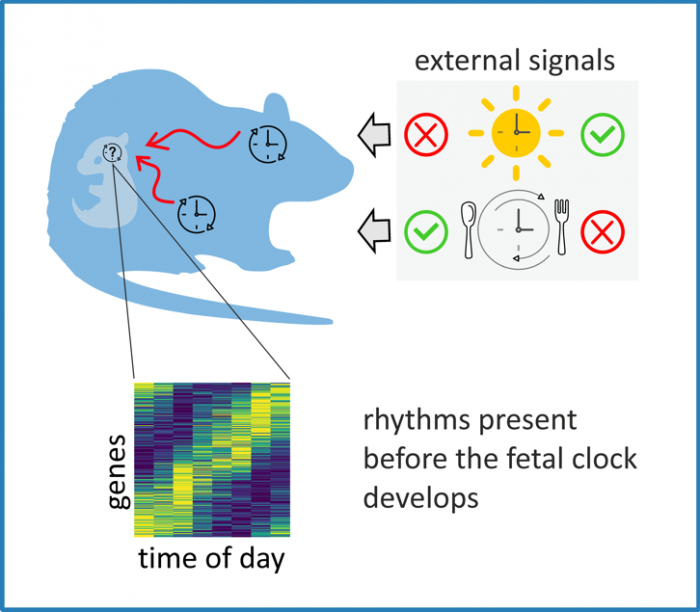 Fig. Maternal signals drive rhythmicity in the fetal suprachiasmatic nuclei before their molecular clock develops.
Fig. Maternal signals drive rhythmicity in the fetal suprachiasmatic nuclei before their molecular clock develops.
New publication (IF=9.6): Early rhythmicity in the fetal suprachiasmatic nuclei in response to maternal signals detected by omics approach. Greiner P, Houdek P, Sládek M, Sumová A (2022) PLoS Biol 20(5): e3001637.
 Fig. Maternal signals drive rhythmicity in the fetal suprachiasmatic nuclei before their molecular clock develops.
Fig. Maternal signals drive rhythmicity in the fetal suprachiasmatic nuclei before their molecular clock develops.
doi:10.1371/journal.pbio.3001637.g005. Our results indicate the importance of a well-functioning maternal biological clock in providing rhythmic environment during the fetal brain development.
During development in of the fetal suprachiasmatic nuclei, maternal stimuli may substitute for an absent inter-cellular web of synapses and drive cell-population rhythms before the SCN clock fully matures. Distinct maternal signals rhythmically control a variety of neuronal processes in the fetal rat suprachiasmatic nuclei before they begin to operate as the central circadian clock.
